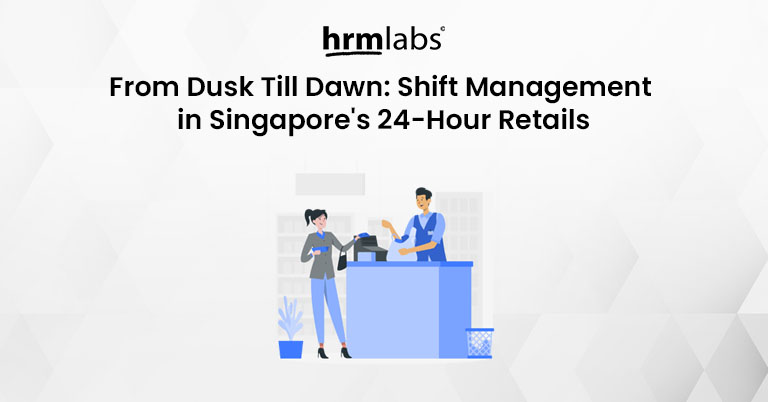Singapore’s retails landscape is evolving rapidly, with more stores operating around the clock to cater to the city-state’s dynamic lifestyle. The 24-hour retails model, while convenient for consumers, presents unique challenges for retailers, particularly in managing employee work shifts. As the demand for continuous retail services grows, so do the complexities associated with shift management, such as shift fatigue, scheduling conflicts, and employee burnout.
The Challenges of 24/7 Retail Operations
Operating a retail business 24/7 is no small feat. It requires meticulous planning and coordination to ensure that stores are staffed adequately at all times without overburdening employees. Here are some of the primary challenges faced by retailers:
- Shift Fatigue: Working long or irregular hours can lead to shift fatigue, where employees become physically and mentally exhausted. This fatigue can decrease productivity, increase the likelihood of errors, and negatively impact customer service.
- Scheduling Conflicts: Balancing the availability and preferences of employees while ensuring that all shifts are covered can be a logistical nightmare. Scheduling conflicts often arise when multiple employees request the same days off or prefer not to work night shifts.
- Employee Burnout: Constantly rotating shifts, especially night shifts, can disrupt employees’ circadian rhythms, leading to sleep disorders, stress, and long-term health issues. Over time, this can contribute to higher absenteeism and turnover rates.
Effective Strategies for Shift Management
Despite these challenges, there are several strategies retailers can employ to manage shifts effectively and maintain a healthy work environment:
- Flexible Scheduling: Allowing employees to have a say in their schedules can significantly reduce scheduling conflicts and increase job satisfaction. Flexibility in shift swaps or allowing employees to choose their preferred shifts can make a big difference.
- Fair Distribution of Night Shifts: Rotating night shifts evenly among employees can help prevent burnout and ensure that no single employee is consistently burdened with less desirable shifts. Transparency in scheduling and giving adequate notice for shift changes can also foster a sense of fairness and trust.
- Data-Driven Staffing: Leveraging data-driven tools to predict staffing needs can optimize shift scheduling. By analyzing sales data, foot traffic, and historical staffing patterns, retailers can better anticipate peak times and ensure they have the right number of employees on the floor.
- Cross-Training Employees: Training employees to perform multiple roles can provide flexibility in scheduling and reduce the impact of unexpected absences. This approach ensures that there are always enough trained staff to cover essential tasks, regardless of who is on shift.
Balancing Business Needs with Employee Well-being
While it’s crucial to meet business demands, it’s equally important to prioritize employee well-being. A well-rested and satisfied employee is more likely to provide excellent customer service, remain loyal to the company, and perform at a higher level. Retailers should strive to create a balanced work environment where the business and its employees can thrive.
How HRMLabs Can Simplify Shift Management
Managing shifts in a 24-hour retails environment doesn’t have to be a daunting task. HRMLabs’ HR and payroll system offers a seamless solution for shift management, ensuring that both business needs and employee welfare are met. With features like automated shift scheduling, real-time attendance tracking, and integrated payroll processing, HRMLabs makes it easier to manage complex shift patterns and ensure fair compensation.
By leveraging HRMLabs’ technology, retailers can automate many of the tedious tasks associated with shift management. The system allows managers to track hours accurately, prevent scheduling conflicts, and monitor employee well-being. All while maintaining compliance with Singapore’s labor laws. This comprehensive approach ensures that employees are paid fairly for every hour worked and helps maintain a motivated and productive workforce.
Wrapping it Up
As Singapore’s retails sector continues to embrace the 24-hour model, effective shift management becomes increasingly crucial. By adopting strategies that promote fairness and leveraging advanced tools like HRMLabs, retailers can navigate the complexities of 24/7 operations while fostering a positive work environment for their employees. In doing so, they not only enhance operational efficiency but also build a stronger, more committed team.



